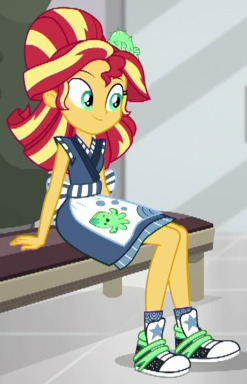
What Is Freedom
"I can't believe this," Sunset muttered angrily. It was near the end of her shift, she was sweeping the floors alongside Stephen. Sunset was still enraged over how Zecora had been treated, complaining and shrieking about it, while Steven worked with a stoic expression.
"How could Mr. Ranchitaimu let Zecora be treated that way," Sunset whined, "it is not like that idiot owns the place."
"He does actually." Sunset dropped her broom, and looked at Stephen in confusion.
"What do you mean?" Sunset said.
"Blueblood, or more specifically, his father," Stephen said with some disdain, "owns the largest real estate firm in the province."
"Are you serious?" Sunset said.
Stephen looked at Sunset with disbelief. "What do you live under a rock?"
No. Sunset had lived in a bubble, imagining herself as a conqueror of Equestria. Human affairs and celebrity's head never been of an interest to her, since she never planned to actually put down roots in this world.
"I've never cared for...celebrity stuff," Sunset said evasively.
"Nor politics," Stephen replied, "because you would know that Blueblood's grandfather is a parliamentary leader. The Bluebloods are not a clan you can...mess with and not expect severe retaliation."
Sunset frowned deeply. She had seen this kind of behavior in Equestria: rich snobs getting away with horrible misdeeds because of family connections. Even when she was mean, Sunset disliked those who drifted through life through privilege rather than worked hard for everything like she had. Even Princess Celestia, despite her power and basic decency, had to work with those idiots to get anything done.
When Sunset arrived at the United Provinces, she did somewhat agree with the ideals of equality and meritocracy that were espoused.
"But I thought this place was about...equality," Sunset said. "They shouldn't be allowed to get away with stuff like that."
"Equality sure," Stephen parroted sarcastically, "if you can afford it." Stephen swept the floors, albeit with incredible bitterness on his face. "In our so-called democratic system, money can determine what really matters in life."
Sunset looked up at the flag of the United Provinces with more than a bit of disillusionment. The green and red stripes supposedly referred to values of equality and brotherhood. But Sunset witnessed the scion of a political dynasty show none of that.
"So what can we do for Zecora?" Sunset said.
"Nothing," Stephen said sadly, "I've tried to connect with Zecora, but she doesn't like charity. The best thing you can do is try and treat her with respect." Sunset let out a sad sigh as she returned to sweeping, thinking bitterly about how snobbery and hierarchy seemed to exist everywhere.
"What do you all think the UP stands for?" Mr. Overton asked his class.
"Can't you pee standing up?!"
Mr. Overton sighed as the chorus of laughter erupted over the overused, but still humorous, joke. The purple-skinned teacher struggled to control a class at the best of times, but the week before a holiday were a special kind of nightmare, since these kids were more invested in their time off than paying him any attention.
"Class," Mr. Overton uttered, "I know you all vacation coming, but you still have to participate. Even when I'm on vacation, I still have to grade your papers and do your lesson plans." A couple of students still kept talking over him. "The next person who speaks out of turn will have to take notes out of the entire textbook for the entire vacation." Mr. Overton suppressed as smirk as everyone clammed up. No kid wanted to work on the holiday.
"Now," he began, walking over to the whiteboard with a green marker, "what does the United Provinces stand for?" Someone raised their hand.
"Yes Mr. Sandalwood?"
"Uh," the nature boy droned, "freedom?"
"Very good," Mr. Overton said, jotting Sandalwood's contribution down, "but what do you mean by 'freedom'?"
"Uh," Sandalwood droned on, his mind clearly in space. "Dunno?"
"Very eloquent answer," Mr. Overton said with a sly grin. "Can someone else take a stab at it?"
"Uh," Fluttershy tried, "doing whatever you want?"
"OK."
"Not letting anyone else tell you what to do?" Flash Sentry said.
"OK."
"Bombing the crap out of everyone else because UPNT Number One!" Gilda said excitedly with raised fists. Everyone snickered at Gilda' remarks. Mr. Overton wasn't annoyed, actually finding some amusement in Gilda's enthusiasm.
"Gilda actually raised a good point," Mr. Overton said with an interested smile.
"I did?" The tall brawler said with confusion.
"One of the debates of warfare is whether or not it is right to bomb civilians as part of military strategy," Mr. Overton lectured, "in order to preserve liberty, as we are often told, we need an army to fight for us. But is the death of civilians in the name of liberty justifiable? Does protecting liberty require you to infringe upon the life of civilians in an enemy population who are not armed?" A wonderful silence came over his class. It meant they seriously considered his question. Even the military brat was left speechless.
"Our nation was founded on the ideal of freedom," Mr. Overton said with a smirk, "but many of us have different ideas about what freedom is. Let me ask another question. What is a country that is not free?"
"The Changeling Alliance," Gilda said with a stern frown. Everyone in class new about their geopolitical enemy, but the military enthusiast, adopted into a military background, would have a special hatred for the Alliance.
"And what makes them 'not free'?" Mr. Overton asked with a smile.
"I don't know," Gilda mumbled, "the...executions, and secret police, and labor camps, and....stuff."
"The Changeling Alliance certainly does all those things," Mr. Overton said, "The ideology of the alliance, since its founding 70 years ago is Hivism. Can anyone tell me what that is?" A muscular arm raised its hand. "Yes Mr. Biceps!"
"Hivism is a totalitarian ideology that promotes the notion that human beings must be obedient to a central authority," Bulk repeated from memory, "the same way that bees must be obedient to a queen. They promote this as a means to exert societal control over a large population, and to suppress dissent and attempts at overthrowing the elite."
"Well put, Mr. Biceps," Mr. Overton said proudly. The brawny teen let out a bashful smile. "Since the Chrysalis Dynasty took over the Changeling Kingdom, each Empress Chrysalis has declared that subversion, individualism, and any form of dissent are a threat to societal harmony." Everyone chuckled at that. "To that end, all facets of Changeling society, from television, to education, to journalism, promote Empress Chrysalis as an infallible god who can do no wrong. That any dissent against her is a threat to the Alliance as a whole." A stern frown came on his face. "And what happens when you step out of line?" Some raised their hand.
"Yes, Ms. Heartstrings?"
"Execution?" She said.
"Sometimes," Mr. Overton said with a stern frown. "Other times, you can be imprisoned for years, tortured, brutalized, enslaved in a labor camp, along with your significant other, and three generations of family that follow you." Mr. Overton let out another frown. "I met a Changeling refugee. He told me he had been given a 20 year sentence for the crime of not praising the Empress three times a day." Everyone was shocked at that.
"Really?" Someone said with horror.
"Yes," Mr. Overton replied with a stern frown. "That is what life is like without legal rights or freedom. That is what happens when society does not grant you legal protections. You can be imprisoned, mistreated, or even killed at the whim of a corrupt official. That is what freedom is not." Overton's smile returned to his face. "But we have some difficulty deciding what freedom is." Mr. Overton pulled out a poster with different icons. "There are the five political parties we all know about. Each of them has different ideas on what freedom is and isn't." Mr. Overton pointed to the icon of a gear. "Can anyone tell me what the Workers' Party defines as freedom?" A blue arm raised its hand. "Yes, Ms. Dash."
"Freedom means standing up to rich jerks who want to control our lives," Rainbow said enthusiastically. "My great-grandpa fought against scabs and crooks at the Pegasapolis Motor Strike!"
"And how do they create freedom in that regard?"
"Um," Rainbow muttered, "letting us...have unions and stuff, and giving us...stuff."
"Since the founding of the Workers' Party over 100 years ago," Mr. Overton began, "the party has claimed to be the party of the people. In the first Workers' Era, the party promoted collective bargaining rights, the right to a shorter work week, and the right to strike. In the second Workers' Era, after the Great Crash, the party promoted positive rights. The idea that government shouldn't just safeguard natural rights, but provide us with things people couldn't obtain themselves. Like health care, education, and housing." He looked back at Rainbow Dash. "Do you think government services are freedom?"
"Yeah," Rainbow replied.
"But why?"
"Because we'd...all be poor," Rainbow stammered, "how can we be free if we don't get enough to eat."
"Gear Shift, the founder of the Worker's Party, said roughly the exact same thing about 100 years ago," Mr. Overton commented, " 'Man cannot be free if he is confined to a cold room, and must sleep with an empty stomach.' ".
"Yeah, that's what I meant to say," Rainbow said with an uneasy smile.
"But the Workers' Party also believes in tariffs," the purple-skinned man commented with a sly grin, "to keep foreign cars from places like Neighpon off the market in order to protect industries. Why?"
"To ensure that people like my dad can keep their factory jobs," Rainbow Dash said.
"But does protect jobs mean we can't be allowed to purchase the things we want," Mr. Overton said. "Does your father's right to his job come before my right as a consumer to buy the things I want to buy?" Rainbow Dash didn't respond, instead silently mulling over the question.
"Now let's move on to the Family and Law Party." Mr. Overton pointed to the picture of a silhouette of a nuclear family embracing one another.
"The party of rich snobs," Rainbow muttered under her breath.
"What does the Family and Law Party define as freedom?" A white arm was raised. "Yes, Mrs. Rarity."
"The party believes that we should be protected against obscenity and perversion," the white-skinned girl muttered.
"Why?"
"Because filth and nonsense should not be allowed to contaminate the airwaves or the Internet," Rarity said.
"So we should be free of things like naughty language?"
"Yes," Rarity replied.
"Currently, the Family and Law Party is the one in power," Mr. Overton discussed, "and Chief Minister Fancypants has often gone on about the need to protect the family from perversion."
"And he's so handsome too," Rarity drooled. She blushed when she realized what she was saying and saw everyone was snickering. "I mean," she said with a blush, "his grooming is...excellent."
"Rarity's thirsty for an old man," Gilda mocked. Everyone laughed, while Rarity felt her face fall into her hands out of embarrassment.
"Yes it is true," Mr. Overton replied, "we shouldn't have perversion on the TV. But perhaps perversion is...subjective isn't it?"
"What do you mean?" Rarity replied.
"In a 1938 debate in the Assembly about foul language," Mr. Overton said, "a comedian who was known for his profane statements said this: 'the Great Text [1] is full of violence and death, and yet I'm being mocked for saying the ten dirty words'." He paused for a moment. "The Family and Law Party promotes living according to Ameliorist Values, and abiding by the Great Text. But there are stories of violence and murder in it. So should we censor it, Ms. Rarity? Stories of torture sound like perversions."
Rarity mulled over the question, and found herself unable to respond easily.
"Now we move on to the Plains Party." Mr. Overton gestured to a picture of a pitchfork. "What is freedom for the Plains Party?" A tan armed raised its hand. "Yes, Ms. Smith."
"The Plains Party ensures that family farms can survive," Applejack drawled, "and that everybody has enough to eat."
"How?"
"Providing subsidies for farms," Applejack said.
"And your family's farm gets subsidies, correct?"
"Yep."
"But many people argue that subsidies takes taxpayer money and gives to farmers so they grow food no one wants," Mr. Overton replied, "if I was someone who didn't like apples, shouldn't I be upset that my taxes are going to apple farms?"
"I'd say you need to get yer head checked," Applejack snarked. Everyone chuckled.
"Now we move on the Chaos Party." Mr. Overton pointed to an insignia of a tornado. "Who can-,"
"OH! ME! ME! ME!" Pinkie Pie got in front of the class, and started jumping up and down. "The Chaos Party says everybody should have fun and not let meanies tell us what to do.
"And what do you mean by that?" Mr. Overton, like everyone else, was taken aback by Pinkie's...Pinkie-ness.
"Well, I wanted to host the best party EVER in the park," Pinkie Pie began, "but the stupid zoning board wouldn't let me!"
"Why?"
"Because of some dumb noise law and environmental law," Pinkie complained with a moan. "How unfair is that? But the Chaos Party agreed with me, which is why I joined."
"You make an astounding point," Mr. Overton bellowed to the hyperactive girl who kept jumping up and down. "You were being denied freedom to throw a party." A smirk formed on his face. "But does your right to party mean you can infringe upon the happiness of others?"
The pink-skinned girl suddenly froze in mid-air, her face speechless.
"But, aren't parties...fun?!"
"But some people don't like noise, and your party would make a lot of it." Mr. Overton smirked. "That's why noise pollution laws exist."
"Really?" Pinkie Pie said uneasily, as if unable to comprehend the idea of her party hurting other people.
"And your party would create a lot of trash that hurts the environment," Mr. Overton continued, "is your right to have fun mean you can pollute the park that everyone enjoys."
"I guess not," Pinkie Pie muttered.
"The Chaos Party, as some of you know, believes that all laws and regulations should be abolished, and that personal freedom is the ultimate right. The founder, Mr. Discord, has denounced everything from the draft to laws against narcotics and drunk driving." A small frown appeared on his face. "But Mr. Discord, shall we say, has been a lightning rod of controversy."
"He has like 3 DUIs, doesn't he?" Flash said.
"He was caught in bed with several whores," Rarity bemoaned.
"Mr. Discord's ideology is one that only rejects laws, but personal responsibility," Mr. Overton opined. "He believes that personal joy is the only thing that matters. But he is guilty of infringing upon the well being of others. In exchange for rights, we all have certain duties to society, and the laws that Mr. Discord opposes ensure that we remember our duty to not hurt others. Does personal pleasure give you a right to endanger or disturb others." Pinkie Pie became unusually thoughtful.
"Now we move on to the Green Leaf Party." Mr. Overton pointed to an insignia that looked like an olive branch. "What do they believe is freedom?" A yellow arm uneasily rose. "Yes, Ms. Fluttershy."
"Tree Hugger says we should all live in harmony with nature," the pink-girl muttered, not liking the attention.
"And how?"
"By protecting the Earth?"
"But how?"
"By stopping pollution, and not eating meat anymore." Fluttershy looked down her knees for a moment.
"In order to be free, we do need clean air and water," Mr. Overton agreed. "But isn't it unfair to tell me what I can and can't eat." Fluttershy's eyes fell to her knees again.
"But...cows are innocent creatures," Fluttershy said with dismay, "why would anyone want to eat something so cute?"
"And what if I'm dying of hunger," Mr. Overton said with a wry grin. "The only thing I have to eat is cow. It is fair to let me starve?"
"You could...drink the milk," Fluttershy whimpered.
"But what if I'm lactose intolerant?" Mr. Overton said dramatically. Fluttershy wept bitterly, unable to face such a wrenching choice, much to the amusement of everyone else.
"But Tree Hugger isn't just an enviromentalist." Mr. Overton's face became more professional. "She's also a pacifist. She says that the military draft is slavery, and we shouldn't have an army anymore. Do you agree with her that a military is against freedom?"
"Yes."
"Why is war against freedom?"
"Because we should all live in peace, and no one should have to do anything they don't want to."
"Coward." Gilda snorted.
"Our military draft has long been controversial since its inception after the Second Meridian War." Mr. Overton's face became more grave. "How did that war start again?" A purple arm was raised.
"Yes Mr. Chips?"
"Well," the geek said nervously, "Emperor Sombra of the Kristall Empire believed the...Krajian people [2], and especially the Yehuvian [3] people...we're an inferior race that needed to be exterminated, and their lands given to the people of the Kristall Empire, and so he invaded..." Micro Chips frowned as he remembered unpleasant family history. He relaxed when Gilda put a comforting hand on his shoulder.
"And what did Emperor Sombra do to invade?" A white arm rose. "Yes, Ms. Griffon?"
"He tricked the Krajian people into disarming, claiming he wanted peace," Gilda said. Her tone was full of disgust. "Once the Krajian people let their guard down, he invaded, the monster."
"Yes, it was horrible," Mr. Overton said with some sadness. "Almost all of us agree that Emperor Sombra's policies were beyond evil. But Sombra never thought he was a monster. He believed with every fiber of his being that people should be like crystals: pure and flawless. And that impure people, like impure crystals, should be...destroyed." Everyone's faced turned with disgust at that.
"If you don't have an army, Ms. Fluttershy," Mr. Overton lectured, "how do you defend against an enemy that believes that your destruction is a righteous cause?" Fluttershy was speechless, unable to respond.
"There are some who argue if the Yehuvian people had not been disarmed, a genocide wouldn't have occurred." Mr. Overton said. "And the Changeling Alliance is not a society that seeks to live within its borders. Whenever it is has had the opportunity, it has spread its ideology and control to its weaker neighbors. If we abolished our military, what would we do if they decided to invade us and our allies?" A question hung over everyone like a scary storm. "Is the time we give to the draft an excuse for social control, or a necessary sacrifice to ensure liberty?" No one answered.
"In conclusion, freedom is rarely simple," Mr. Overton concluded. "One's own freedom could potentially infringe upon the well-being of others, while certain collective responsibilities may be an unfair demand placed on us. These debates have existed since the United Provinces were founded. And they'll continue long after we're gone. Because as society has changed, so has our understanding of freedom, and the changes we may see in our lifetimes will force into us new debates." He glanced at the clock. "Since we're about out of time, I shall give you your assignment. You must write a one page paper, in which you give your own definition of what freedom is. Due Friday." Someone raised their hands.
"What is your definition of freedom Mr. Overton?" Flash Sentry asked. The blue-haired guitarist and others were keenly interested in what he thought was freedom.
"I believe the fact that we can have these discussions is what makes our society free," Mr. Overton said with some pride. The bell rang.
"Remember, you still have to do your homework," the purple man called out to the students getting their books and leaving the room.
Sunset said nothing as she walked out of the classroom, reconciling the treatment of Zecora with the supposed ideals Mr. Overton droned on about.

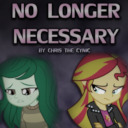
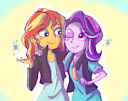

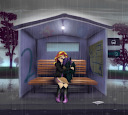

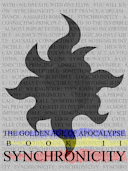




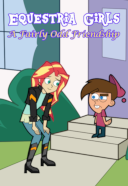




Actually, it's the Blueblood family's political pull (a family member in government) that enables it to force its opinions on others, not money. Money is merely a tool of exchange and cannot force anyone to do good or evil.
Being free from physical coercion.
The nation who initiates force outside of rational self-defense assumes full responsibility for what happens to its civilians, not the nation that must defend itself against the aggression. And even civilians who aren't armed build the weapons and equipment the military uses, therefore it is perfectly logical to bomb them.
Sorry to say, Dash, that your great-grandpa fought against freedom. "Scabs" are merely workers who do not go along with a union's decision (which they have every right to do and whom the union does not have a right to bully) and "crooks" are simply the business owner controlling his property (ie, his business), which is his right. And it was not unions that gave you anything; it was the people who put in the time and effort and undertook the risk of starting a business in the first place.
Again, those "rights" were made possible by the people who started businesses. And no, there is no right to interfere in the workings of a business and bully workers who don't go along with you.
And there is not and cannot be any right to anything that can only be produced by the time and effort of another person. To call such things rights is to enslave the people who provide them, since that would mean they must provide them to anyone and everyone who demanded them, with no right to ever stop and no right to any compensation in return. The idea that the man who puts in the time and effort to become a doctor owes those skills to the people who didn't is absurd.
Actually, yes he can. He is free to take action to acquire food and a heated home. But that action must involve value for value trade for the goods.
Actually, a public park is technically city property, ergo the city holds the right to decide what can and can't be done in the park.
Actually, it's very simple. It simply means free from physical coercion. And there are no clashes of interest (or freedom) among rational individuals. The individual who understands he has no right to another person's life and property and that he may not use physical coercion against others does not infringe on anyone's freedom.
10441990
Are you a member of a debate team? Those are some pretty good rebuttals.
I don't agree with them, but you seem to have a good grasp of political discussion.
10442065
No. Just an Objectivist.
10442159
Oh. So you believe that people should operate under an enlightened self-interest, and all that?
10442179
People should operate by logic.
Interesting chapter.
I liked how you put in Discord.
Excellent world building.
Hello, pain.
10723424
Dude chill….
I can't wait for the next chapter!
I'm confused, how does the timeline work? The Anon a Miss story occurs on Christmas after Rainbow Rocks and is treated as Sunset's first Christmas post-Fall Formal, yet with this being after Christmas but before Rainbow Rocks, it does make me confused.